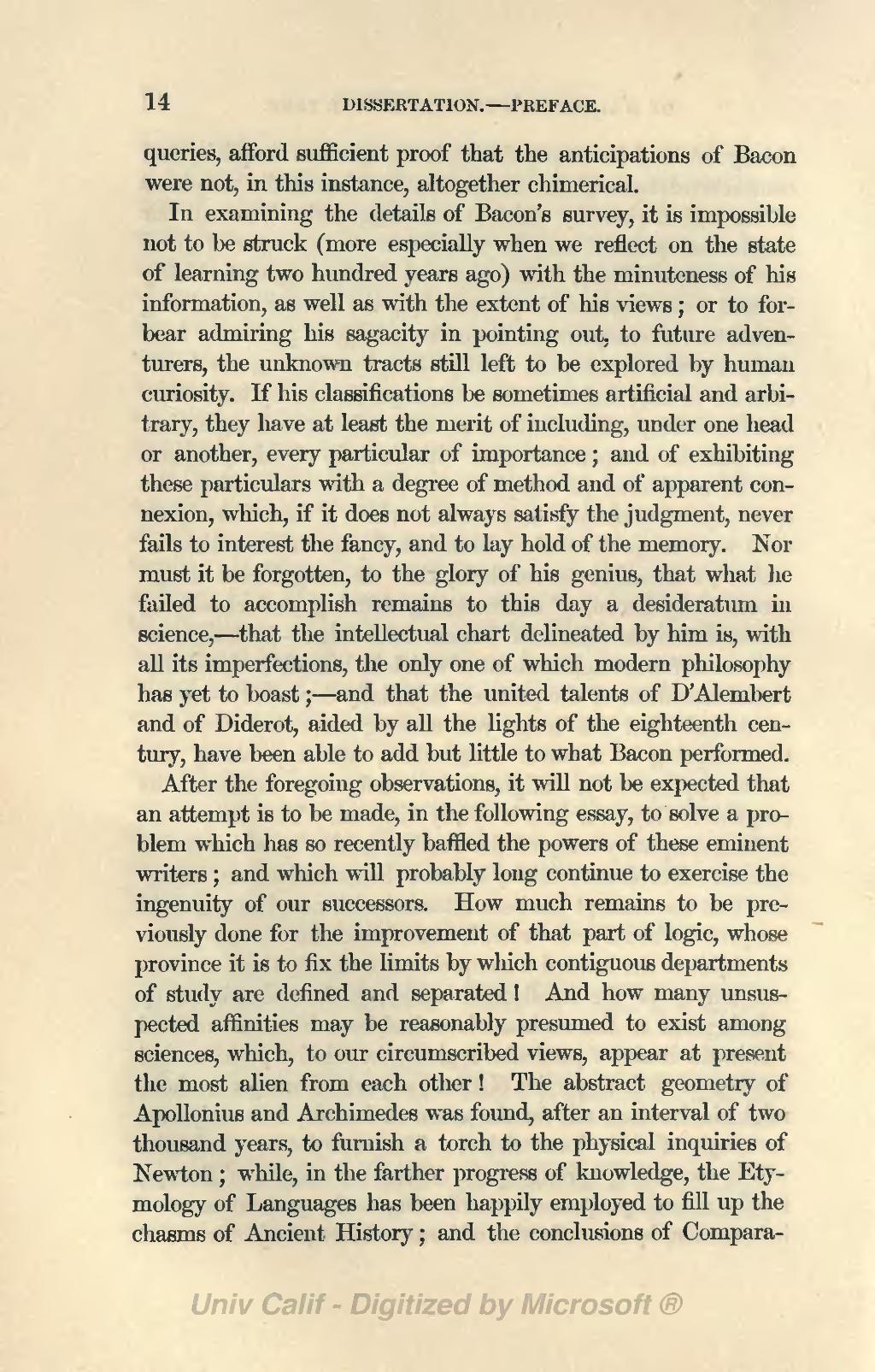queries, afford sufficient proof that the anticipations of Bacon were not, in this instance, altogether chimerical.
In examining the details of Bacon's survey, it is impossible not to be struck (more especially when we reflect on the state of learning two hundred years ago) with the minuteness of his information, as well as with the extent of his views; or to forbear admiring his sagacity in pointing out, to future adventurers, the unknown tracts still left to be explored by human curiosity. If his classifications be sometimes artificial and arbitrary, they have at least the merit of including, under one head or another, every particular of importance; and of exhibiting these particulars with a degree of method and of apparent connexion, which, if it does not always satisfy the judgment, never fails to interest the fancy, and to lay hold of the memory. Nor must it be forgotten, to the glory of his genius, that what lie failed to accomplish remains to this day a desideratum in science,—that the intellectual chart delineated by him is, with all its imperfections, the only one of which modern philosophy has yet to boast;—and that the united talents of D'Alembert and of Diderot, aided by all the lights of the eighteenth century, have been able to add but little to what Bacon performed.
After the foregoing observations, it will not be expected that an attempt is to be made, in the following essay, to solve a problem which has so recently baffled the powers of these eminent writers; and which will probably long continue to exercise the ingenuity of our successors. How much remains to be previously done for the improvement of that part of logic, whose province it is to fix the limits by winch contiguous departments of study are defined and separated! And how many unsuspected affinities may be reasonably presumed to exist among sciences, which, to our circumscribed views, appear at present the most alien from each other! The abstract geometry of Apollonius and Archimedes was found, after an interval of two thousand years, to furnish a torch to the physical inquiries of Newton; while, in the farther progress of knowledge, the Etymology of Languages has been happily employed to fill up the chasms of Ancient History; and the conclusions of Compara-

